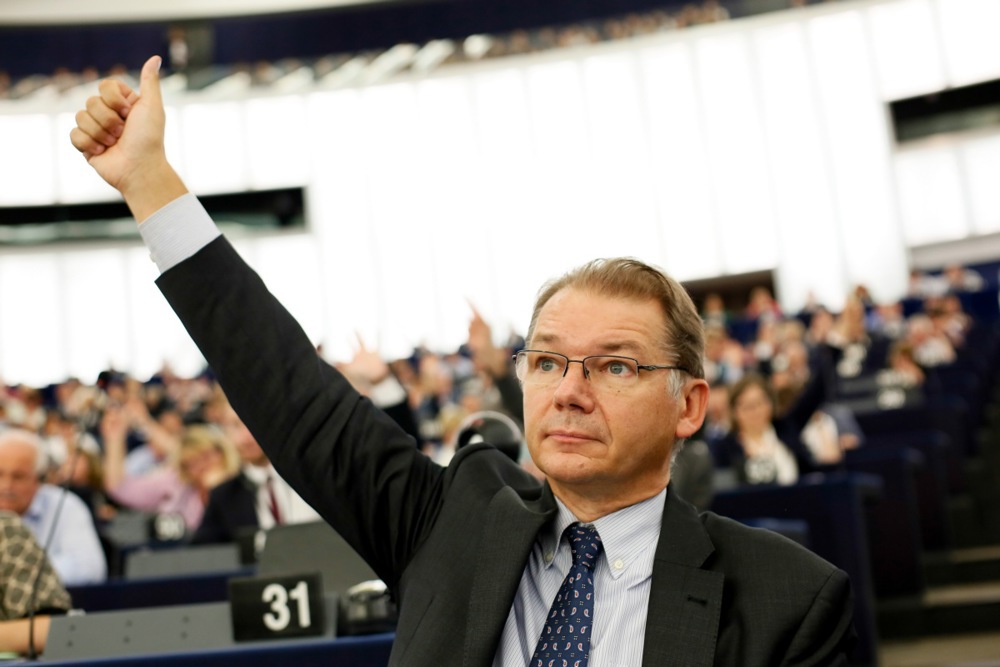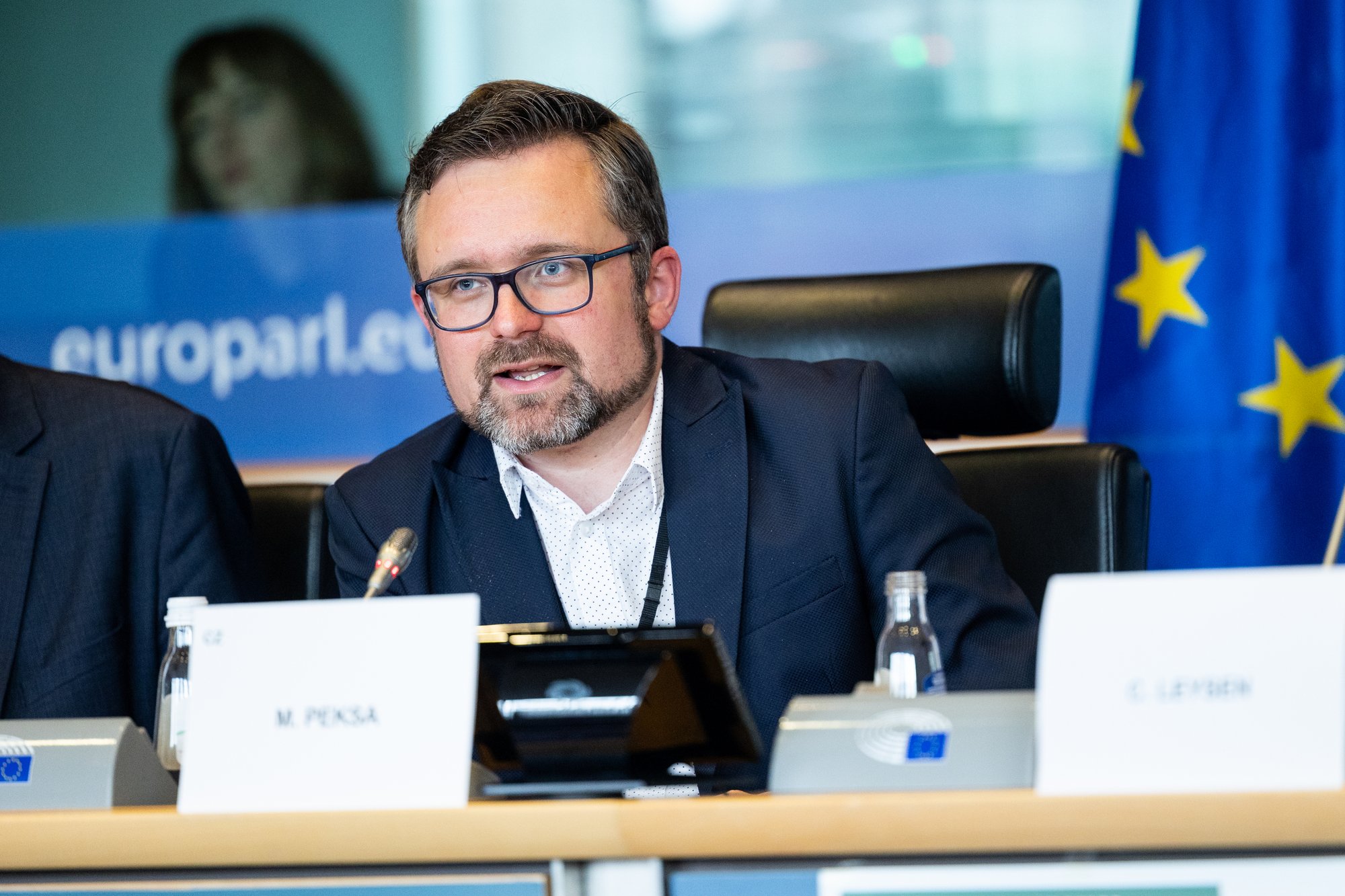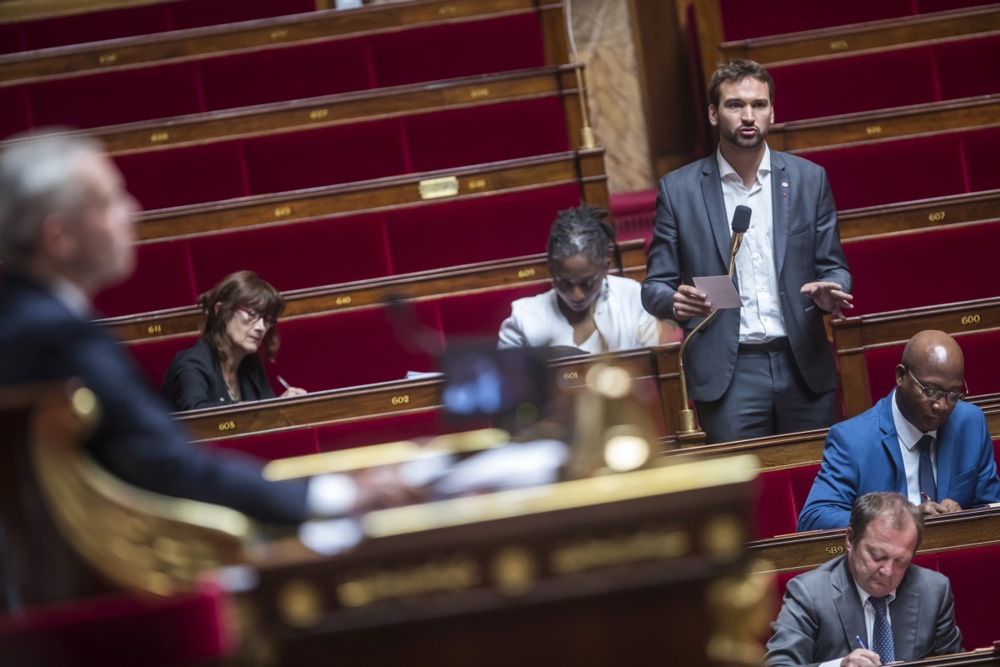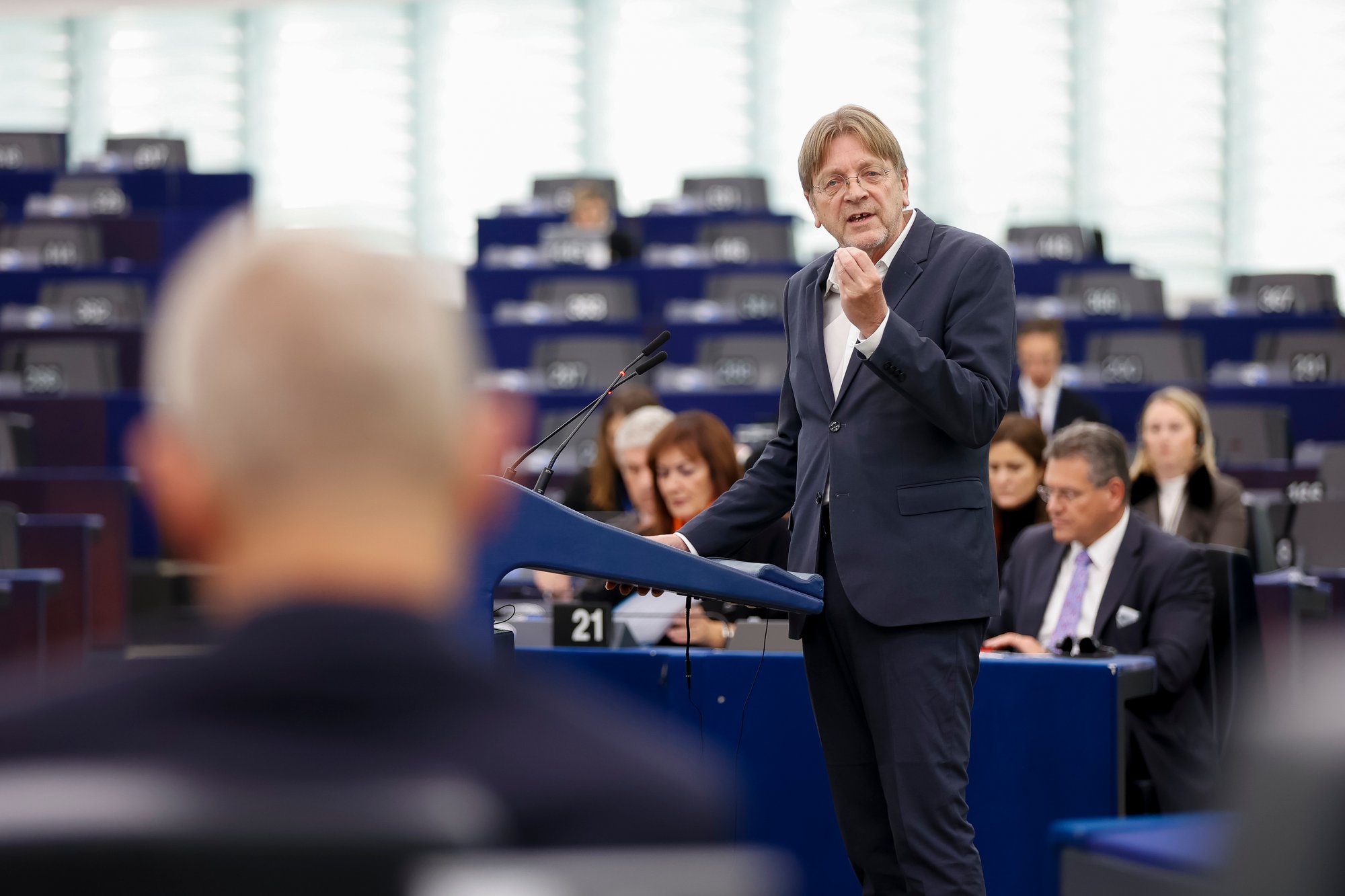Liberal and left-wing MEPs are calling for the heads of Germany’s Alternative für Deutschland (AfD).
During a topical European Parliament plenary debate on the evening of January 16, in what they described as an effort to combat the “rise of neo-fascism”, members of the Left and Green political Groups demanded that action be taken by the European Union.
Other MEPs claimed the entire discussion was “disingenuous electioneering”, as the Left and centre-left feared losing out to the rise of the populist Right across Europe.
Speaking to Brussels Signal, AfD MEP Gunnar Beck said the Liberal and Left calls were “hyperbolic pathos” and provided “a good example the current climate of political discourse in Germany”.
The issue comes as the populist right-wing AfD party and Giorgia Meloni’s Italian Government have both been hit with controversy.
The Parliament debate was scheduled in response to an annual commemoration in Rome on January 9 of right-wing activists murdered in 1970s, which is routinely attended by Italian neo-fascist groups.
In a press release sent out before the latest debate, German Green MEP Terry Reintke condemned her fellow Germans in the AfD for what she said was their “frontal attack on democracy”.
She added that the party was launching “attacks on our political system, on governments, on the LGBTQI community and on migrants.
“The right-wing extremists will not stop at anyone who thinks differently, loves differently, looks differently, speaks differently,” she said.
Alongside Tino Chrupalla, the AfD is chaired by Alice Weidel, who is in a civil partnership with a Sri Lankan woman.
Reintke pointed to a series of mass demonstrations against the hard-right in Germany on January 14, saying it “shows that the AfD does not represent the supposed ‘silent majority’ and that an increasing number of people are standing up against a party that despises humanity”.
Beck disagreed and said the German Government spends more than “€1 billion … to fight alleged right-wing extremism”.
He added that “part of this money is used to fund regular demonstrations against us by Antifa [anti-facists] and other similar groups”.
“Conveniently, Ms Reintke ignores that not thousands but many tens of thousands of ordinary farmers and citizens have in recent years taken to the streets to protest against the Government’s Corona lockdowns, their current policy and their foreign policy. They did so without funding,” he said.
Berlin has recently found itself blockaded by German farmers protesting against the Green and Social Democrat coalition Government.
PHOTO STORY: Germany’s capital Berlin came to a “standstill” amid anti-government protests led by farmers. #Bauernproteste https://t.co/pnpGdGjqyP
— Brussels Signal (@brusselssignal) January 15, 2024
Given, Beck claimed, that polling has shown 80 per cent of Europeans are against mass immigration, he added that his “party gives a voice to those people”.
“We are defending democracy but within the framework of law.”
With almost a quarter of Germans saying they will vote for AfD, questions are arising in Germany among governmental parties and their supporters over banning the party.
In the most recent episode, German politicians were told via a one-million-strong public petition to strip AfD heavyweight Björn Höcke of his fundamental rights to vote and participation in politics.
More than 1 million people have signed a petition demanding that the Government strip Björn Höcke, the AfD party’s chief in the State of Thuringia, of his right to vote or take part in politics. https://t.co/tmmZk4DS0s
— Brussels Signal (@brusselssignal) January 17, 2024
Reintke also condemned the Meloni Government for what she said was its “silence” on the neo-fascist event in Rome nine days ago, saying it was “clear proof that democracy in the EU is increasingly under threat.”
Despite the apparently important issues in the plenary debate, the chamber seemed relatively empty.
Nicola Procaccini, an MEP for Meloni’s Fratelli d’Italia party, noted that the “members who wanted this debate are not here”.
She said: “I think that shows what’s really important for these ‘champagne anti-fascists’. It’s more important for them to get to their dinner rather than be here.”
Procaccini and other Italian MEPs on the Right questioned why the neo-fascist commemoration was being brought up this year, since it had occurred annually under Italian governments of all political persuasions for some 40 years.
Paolo Borchia, an MEP for the Lega group, said the whole issue “sounded like broken record” and that the Parliament’s majority had its “priorities in the wrong place”.
Instead of having a “balanced debate” on the violent history of Italy in the 1970s, he said the “plenary room was being used for an hour – just for electoral purposes”.
From the United States to Germany, the self-proclaimed defenders of democracy are fast becoming its enemies: They are playing a very dangerous game, writes @Raphfel. https://t.co/tuXQoCRKrc
— Brussels Signal (@brusselssignal) January 9, 2024





